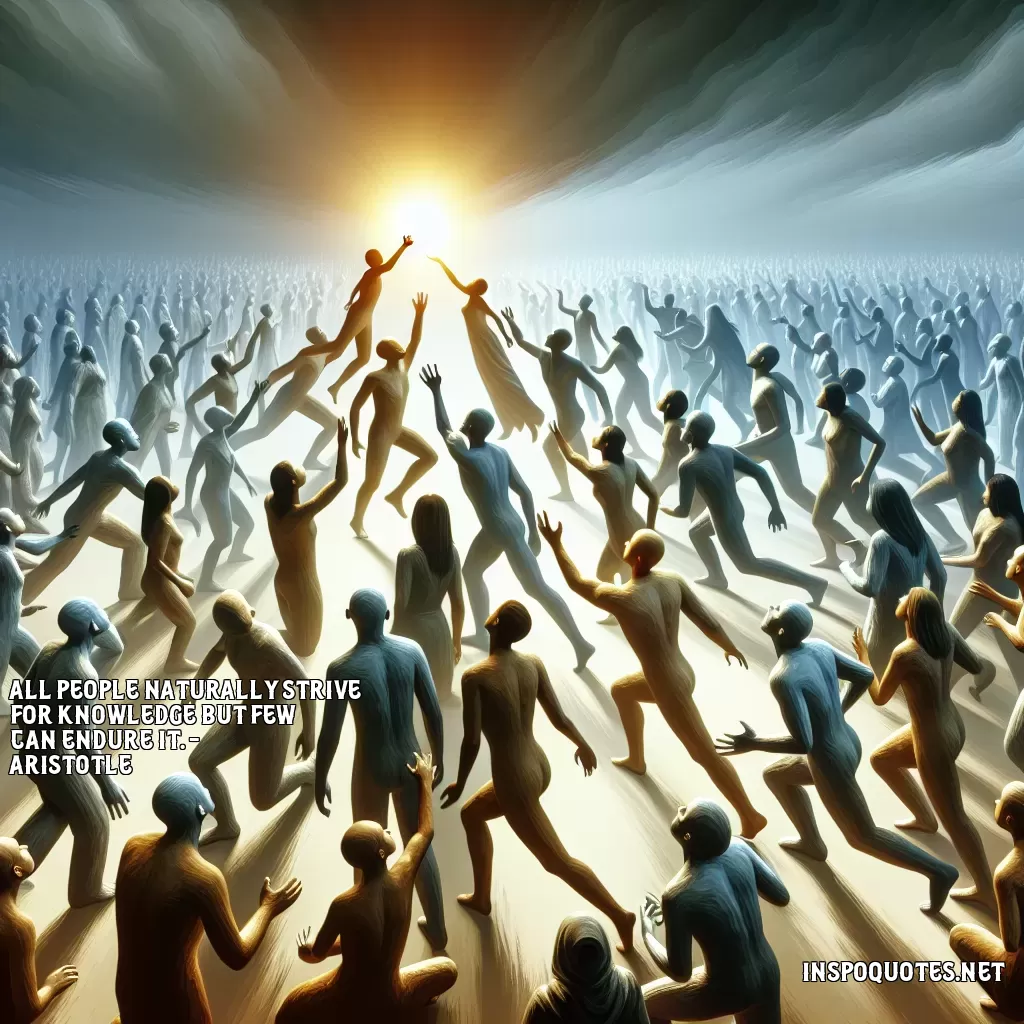
All people naturally strive for knowledge but few can endure it. - Aristotle
Author: Aristotle
👁️ 7 views

All people naturally strive for knowledge but few can endure it. - Aristotle
👁️ 7 views
The quote, "All people naturally strive for knowledge but few can endure it," attributed to Aristotle, speaks to the inherent human desire to learn and understand the world around us, while also acknowledging the challenges that come with deep knowledge and understanding. Firstly, the phrase "All people naturally strive for knowledge" suggests that the pursuit of knowledge is an intrinsic part of human nature. From childhood, humans exhibit a curiosity about their environment, constantly asking questions and seeking explanations. This drive is foundational to personal growth, innovation, and societal advancement. It is a testament to the human spirit's relentless quest to comprehend the complexities of life and the universe. However, the second part of the quote, "but few can endure it," introduces the idea that while many desire knowledge, not everyone is prepared or willing to face the consequences and responsibilities that accompany it. True knowledge often requires a deeper understanding of uncomfortable truths, challenges existing beliefs, and demands critical thinking and reflection. It can expose the limits of one's own understanding and force individuals to confront moral, ethical, or existential dilemmas. Enduring knowledge means accepting the burdens it can bring — the awareness of unknowns, the realization of one’s own ignorance, or the moral imperatives that demand action. Thus, while the pursuit of knowledge is desirable and often exhilarating, the endurance of its full implications requires courage, resilience, and often, personal sacrifice. Therefore, the quote underscores a fundamental paradox in the human condition: the desire to know and the difficulty of bearing that knowledge fully.
Quote By: Aristotle
Aristotle (384–322 BC) was an ancient Greek philosopher and polymath, a student of Plato and teacher of Alexander the Great. He made foundational contributions to numerous fields including ethics, politics, metaphysics, logic, and biology, establishing frameworks that would influence Western thought for centuries. His works, such as "Nicomachean Ethics" and "Politics," continue to be studied for their profound insights into human nature and society.
Bio added on: 2025-02-13 06:30:27